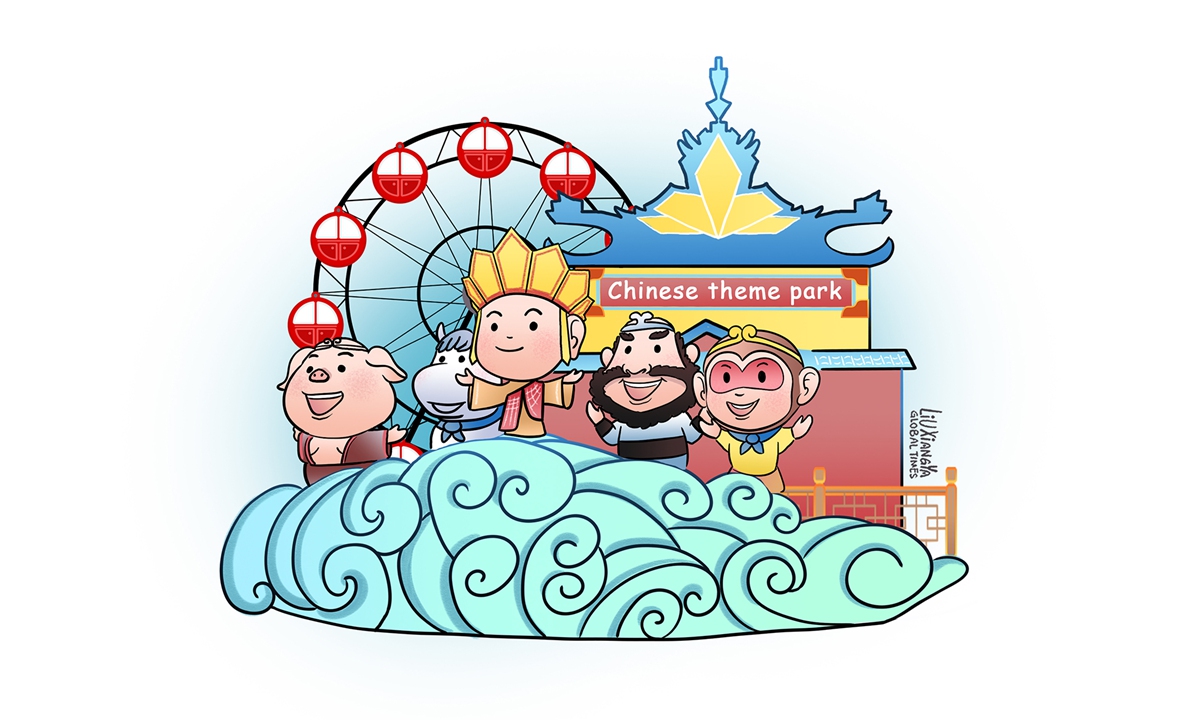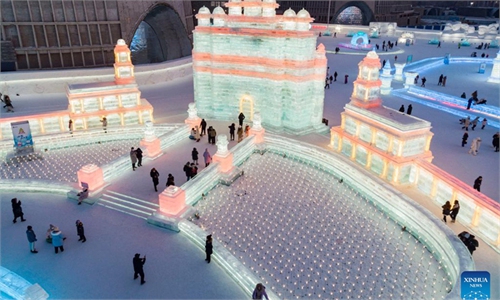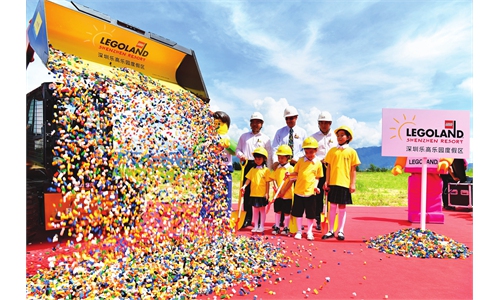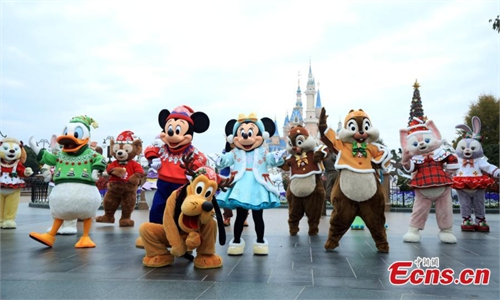ARTS / CULTURE & LEISURE
Theme parks with own IPs help foreigners learn Chinese culture

Illustration: Liu Xiangya/Global Times
I read an article published recently in the Canadian media Sept Days saying that during this summer vacation Chinese theme parks have been growing in popularity for the traditional culture on display. As Chinese cultural IP becomes more and more popular in foreign movies or TV dramas, I wonder if it is possible to build a theme park like Disneyland with China's own IPs.
Disneyland and Universal Studios are among the most popular theme parks in the world, relying on character IPs such as Mickey Mouse, Donald Duck and The Lion King. However, Chinese theme parks attract visitors with historical and mythological figures, ancient clothing and images from Chinese classics such as Journey to the West.
Over the past few years, these cultural IPs have also appeared in the movies produced by the US, such as The Forbidden Kingdom, American Born Chinese and Mulan, helping traditional Chinese culture to be learned by the world.
I am very glad to see that Chinese cultural elements have been adopted in US movies. It reminds me of the days in the early 1990s when most Chinese would visit Disneyland or Universal if they visited the US. As in interpreter for Chinese tour groups, I had visited them a dozen times. While experiencing the exhilarating attractions and getting to know US culture, I always felt a little regretful and lost as all the cultural icons in the parks were unknown to me.
For example, while I was doing translation on a bus tour at Universal Studios, I got stuck when it came to the specific title of a film that had been shot at a certain studio because all the films were produced in the US, and by that time only a few of them had been imported to China. Likewise, some names of the attractions at Disneyland were also strange to me, which made me feel awkward during my work. So since then, I have been thinking about when there could be a theme park that would tell Chinese stories.
I am glad that 20 years later, the first Disneyland opened in Shanghai thanks to China's economic development. And I am more than happy to see that some Chinese culture has been employed in the park, such as the Chinese Zodiac, southern China architecture and decorations. Just two years ago, Universal Studios also opened in Beijing, adding the other entertainment giant in China. I heard that more attractions with Chinese cultural icons can be found there, including Kung Fu Panda, the celestial globe and Chinese paintings.
But apart from these, can China build a theme park of its own?
According to the Sept Days article, by observing the development of Western theme parks, when the per capita GDP passes $5,000, people will shift from sightseeing tours to vacation tours. At present, the per capita Chinese GDP has reached more than $12,000, so people's aspiration for touring theme parks has been soaring. It is time to have our own theme park, or an "Oriental Disneyland" as the article called it.
However, in comparing China with Western countries, there is a still gap when it comes to establishing a theme park that strongly relies on its own IPs.
According to a research report, IP is the "soul" of a theme park. So far, Chinese are still short of household names with big fan bases. To build its own IP, some domestic theme parks take advantage of traditional Chinese culture such as Songcheng park, others focus on films and TV dramas such as the Boonie Bears series.
It is encouraging to see that the Chinese cultural industry has been taking a big step forward in its creative works. For example, the recent domestic animation film 30,000 Miles From Chang'an has become a hit thanks to its Chinese ink paintings, ancient poems, and the most advanced technology. It shows that China has a big potential for improving its cultural industry.
Traditional Chinese culture is a source of inspirations including IPs for the entertainment industry. Meanwhile, it should also learn to borrow advanced technology from Western countries.
The key lies in creative ideas. As long as China hopes to develop its traditional culture IP, it will have a theme park of its own. I really hope this day will come soon.
The author is a Global Times freelancer. life@globaltimes.com.cn



